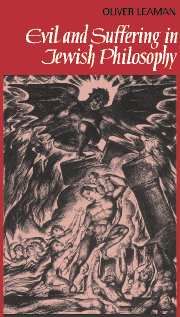9 - Buber
Published online by Cambridge University Press: 24 October 2009
Summary
Martin Buber (1878–1965) and Franz Rosenzweig (1886–1929) translated the Bible into German yet again, in an attempt at producing a version which would reflect the language of the time. By then, of course, German was the mother tongue of the Jews of Germany, and not only Yiddish but Hebrew were only a distant memory. Rosenzweig died before the translation was completed and Buber finished it himself, ironically when there was no longer a Jewish culture in Germany to revive. The Enlightenment project seemed to fail in the twentieth century, and not only as a result of the Holocaust. Even before this event Buber and Rosenzweig had become critical of the identification of Judaism with reason, arguing instead that this ignores the vital part which revelation and religious experience plays in Jewish life. Their approach to Jewish philosophy seeks to bring back the personal into respectable metaphysics. The long apologetic process of reconciling reason and revelation had come to a dramatic end in this century. There is much in religion which is not neatly encapsulated in terms of what might be regarded as the principles of scientific rationality, and this part of religion should be acknowledged and respected too. One of the goals of Buber's philosophy is to give due weight to the fact of religious experience. This is not to suggest that it is not possible to apply philosophy to such experience – clearly this is possible in his view – but it is a warning against regarding such experience as merely the raw data for philosophical arguments.
- Type
- Chapter
- Information
- Evil and Suffering in Jewish Philosophy , pp. 165 - 184Publisher: Cambridge University PressPrint publication year: 1995



